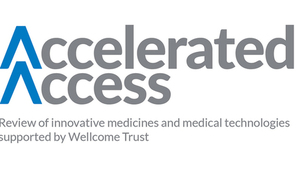Themes and ‘big questions’ for Accelerated Access Review
Review is examining pathways for pharmaceuticals, medical technology and digital healthcare across four big interconnecting themes.

The Accelerated Access Review has set out the main themes and questions it will be looking at in it work to speed up access to innovative drugs, devices, digital health and diagnostics for NHS patients.
These are:
-
establishing need, priorities and principles for innovation – how can we find a transparent way for innovators to make sure that innovation is based on patient need, and that industry, the NHS, research charities and academia collaborate to understand and respond to patient need?
-
new development pathways – how can we make sure that the existing safety and efficacy process is more efficient and simple, while maintaining safeguards for patients, and that there is a clear, and quicker way to have access to particularly innovative products?
-
affordable national funding models to drive innovation – how can we integrate and speed up national reimbursement processes, and fund clinically and cost-effective innovation across the pathway?
-
local adoption and diffusion – how can we speed up how clinically and cost effective innovative products are commissioned by the local NHS, and get to patients?
At the heart of this is how patients and users become involved to make sure that innovation works for them, and treatments, medical devices and technologies are developed and driven forward in a way that reflects demand.
The Wellcome Trust is supporting the Review. Its director, Dr Jeremy Farrar, said:
This review is an important step towards ensuring that patients can benefit as quickly as possible from new discoveries, and we are glad that the government is continuing to take it forward.
The Accelerated Access Review will conclude by the end of 2015. An interim report will be published in late summer 2015.